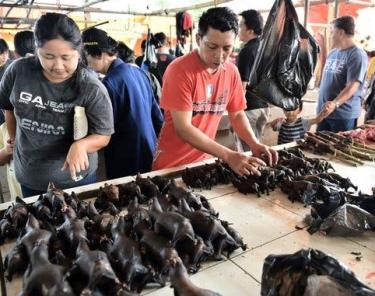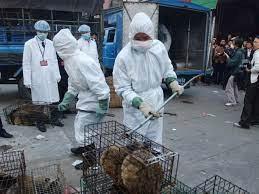 A recent study conducted by international epidemiologists and virologists co-authored by Professor Edward Holmes, an evolutionary biologist at the University of Sidney, Australia, has disclosed a high risk associated with contact between humans and exotic animals in China. The study was in part supported by the National Key Research and Development Program of China and will be subject to peer review with subsequent publication. A preliminary manuscript has been released on bioRxiv an open-access repository. Sponsored research was conducted as a scientific exercise and was not intended to probe the origins of SARS-COVID-2 responsible for COVID.
A recent study conducted by international epidemiologists and virologists co-authored by Professor Edward Holmes, an evolutionary biologist at the University of Sidney, Australia, has disclosed a high risk associated with contact between humans and exotic animals in China. The study was in part supported by the National Key Research and Development Program of China and will be subject to peer review with subsequent publication. A preliminary manuscript has been released on bioRxiv an open-access repository. Sponsored research was conducted as a scientific exercise and was not intended to probe the origins of SARS-COVID-2 responsible for COVID.
A dozen species of game animals sold in food markets in China, yielded 71 mammalian viruses including 18 regarded as “high risk” to both people and domestic animals. Civets responsible for the dissemination of severe acute respiratory virus (SARS) two decades ago were regarded as the species carrying the highest number of potentially pathogenic viruses.
As part of the study, Dr. Shuo Su of the Nanchang Agriculture University, College of Veterinary Medicine, examined 1,725 animals from among 16 species collected in 19 provinces in China. Many of the same species were sold at the Huanan Seafood Wholesale Market in Wuhan representing a hazard to consumers and the public in general. Among the findings of the study, pangolins, civets and bamboo rats carried norovirus and influenza B. Cross-species transmission of mammalian viruses was  confirmed including isolation of a bat-associated coronavirus in a civets and a swine pneumovirus in pangolins. If bat viruses can infect civets, it is possible that a further “species jump” to human could initiate an outbreak according to Dr. Holmes. He characterized the consumption of exotic species in China as “the right virus in the right animal at the right time could easily trigger a global pandemic.” Dr. Holmes noted, “The study highlights exactly why the wild life trade and live animal markets are a pandemic accident waiting to happen.”
confirmed including isolation of a bat-associated coronavirus in a civets and a swine pneumovirus in pangolins. If bat viruses can infect civets, it is possible that a further “species jump” to human could initiate an outbreak according to Dr. Holmes. He characterized the consumption of exotic species in China as “the right virus in the right animal at the right time could easily trigger a global pandemic.” Dr. Holmes noted, “The study highlights exactly why the wild life trade and live animal markets are a pandemic accident waiting to happen.”
Shortly after the emergence of COVID in Wuhan, the Central Government banned trade in exotic species. Consumption of terrestrial wild animals has been prohibited since early 2020.